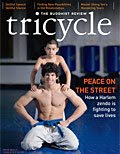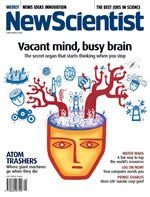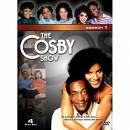Below, are my results on a Personality Disorder test I took today. My scores are in black; average scores are in gray. Note: I have NO personality disorder, scoring low on all but three tests -- with each of the three in different general areas. Note, too, that my current unusual and highly-stressed circumstance weighed in a lot with my answers, as did my Buddhist orientation toward the world -- and how that skews things I can't easily guess. So, the results may not say a lot. The result I most question is Histrionic. I am at least up to near average with my Histrionastasy!
Damn it to HELL!!
| Paranoid | | 42% | 49% |
| Schizoid | | 78% | 53% |
| Schizotypal | | 38% | 53% |
| Antisocial | | 30% | 47% |
| Borderline | | 62% | 47% |
| Histrionic | | 18% | 43% |
| Narcissistic | | 34% | 41% |
| Avoidant | | 38% | 39% |
| Dependent | | 30% | 37% |
| Obsessive-Compulsive | | 43% | 40% |
*scores in gray are the average web score |
Test Note: Read the descriptions below to avoid misinterpreting test results (for example, the Antisocial classification does not mean you are a loner, it means you tend to be insensitive towards others).
General Note: the validity and reliability of DSM personality disorders are still lacking in strong statistical evidence and clear agreement in the scientific and medical community. They are determined by the American Psychiatric Association and will likely be revised in the future.
Author Note:I don't think Schizoid personality is a valid disorder (
read), some of the smartest people in history were schizoid because they occupied a remote end of the intelligence bell curve. Schizotypal personality can encompass highly original thinkers as well as totally insane people so I think it's a flawed type. I think the remaining eight disorders are generally valid.
Disorder Info
Eccentric Personality Disorders: Paranoid, Schizoid, Schizotypal. Individuals with these disorders often appear odd or peculiar.
Paranoid Personality Disorder - individual generally tends to interpret the actions of others as threatening.
Schizoid Personality Disorder - individual generally detached from social relationships, and shows a narrow range of emotional expression in various social settings.
Schizotypal Personality Disorder - individual is uncomfortable in close relationships, has thought or perceptual distortions, and peculiarities of behavior.
Dramatic Personality Disorders: Antisocial, Borderline, Histrionic, and Narcissistic. Individuals with these disorders have intense, unstable emotions, distorted self-perception, and/or behavioral impulsiveness.
Antisocial Personality Disorder - individual shows a pervasive disregard for, and violation of, the rights of others.
Borderline Personality Disorder - individual shows a generalized pattern of instability in interpersonal relationships, self-image, and observable emotions, and significant impulsiveness.
Histrionic Personality Disorder - individual often displays excessive emotionality and attention seeking in various contexts. They tend to overreact to other people, and are often perceived as shallow and self-centered.
Narcissistic Personality Disorder - individual has a grandiose view of themselves, a need for admiration, and a lack of empathy that begins by early adulthood and is present in various situations. These individuals are very demanding in their relationships.
Anxious Personality Disorders: Avoidant, Dependent, Obsessive-Compulsive. Individuals with these disorders often appear anxious or fearful.
Avoidant Personality Disorder - individual is socially inhibited, feels inadequate, and is oversensitive to criticism
Dependent Personality Disorder - individual shows an extreme need to be taken care of that leads to fears of separation, and passive and clinging behavior.
Obsessive-Compulsive Personality Disorder - individual is preoccupied with orderliness, perfectionism, and control at the expense of flexibility, openness, and efficiency.
 Happy Thanksgiving, Everybody. May your day be a joyous one with NFL games all in a row. May the cranberries and pumpkin pie be as delicious as the tofo turkey.
Happy Thanksgiving, Everybody. May your day be a joyous one with NFL games all in a row. May the cranberries and pumpkin pie be as delicious as the tofo turkey.












